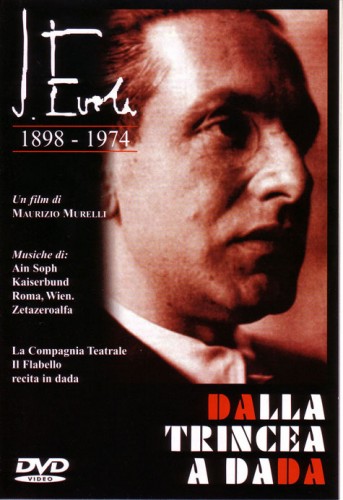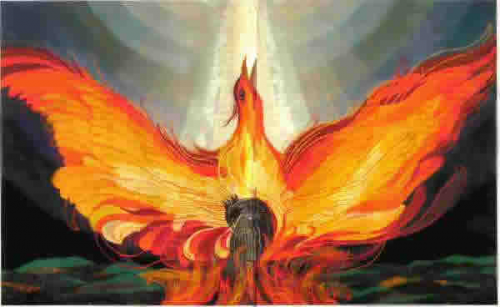Renato Del Ponte
Ex: http://www.counter-currents.com/
Translated by Greg Johnson
 Renato del Ponte is a central figure in European Evolianism. Founder of the Centro studi evoliani in Genoa in 1969 and editor of the journal Arthos, he also runs the Roman Traditionalist Movement.
Renato del Ponte is a central figure in European Evolianism. Founder of the Centro studi evoliani in Genoa in 1969 and editor of the journal Arthos, he also runs the Roman Traditionalist Movement.
Question: Renato del Ponte, your name is closely related to Evola’s. Can you tell us how you came to Evola and what your relationship was with him?
Reply: I am simply a man who has always sought to give my life, on the existential, political, and cultural levels, a line of extreme coherence. It is no surprise that on this way I crossed paths with Evola, who had made coherence in his life as in his writings his watchword.
Naturally because Evola was born in 1898 and I in 1944, our physical encounter could take place only in the last years of his life.
The circumstances and the characteristics of our relationship are developed partly in the letters from 1969 to 1973 (published in the book Julius Evola, Lettere 1955–1974 [Finale Emilia: Edizioni La terra degli avi, 1996], pp. 120–155).
It was always a very cordial relationship, which imparted in me the desire to create an organizational network to make his thought better known in Italy and abroad.
Q.: It is you who deposited the urn containing Evola’s ashes in a crevasse on Monte Rosa. Could you tell us the circumstances?
R.: Yes, it was I, along with other faithful friends, who ensured the transport and the deposit of Evola’s ashes in a crevasse on Monte Rosa at 4,200 meters of altitude, at the end of August 1974. To tell you the truth, I was not the executor of Evola’s will, but I had promised him that, along with our mutual friend Pierre Pascal, I would be vigilant so that the provisions of his will concerning his burial were correctly carried out.
As Evola feared, there were many serious oversights that obliged me to intervene and carry out the burial with the assistance of Eugene David who was Evola’s alpine guide when he made his ascents of Monte Rosa in 1930. It is impossible for me to relate all these adventures, some rather romantic, but you can refer to the collective work Julius Evola: le visionnaire foudroyé [Julius Evola: The Fallen Visionary] (Paris: Copernic, 1979) where some of them are reported.
Q.: You run the Roman Traditionalist Movement. What is this?
R.: The Movimento tradizionalista romano is an essentially cultural and spiritual structure that aims to raise awareness of the characteristics of the Roman Tradition, which is not a historical reality that has been definitively left behind, but an immortal spiritual reality still able to offer today an operative existential model and a religious orientation based on what we define as the “Roman way of the Gods.” To this end, the movement acts on a very discrete internal and communal dedicated to the practice of pietas, and on an external plane dedicated to making known the traditional set of themes of Romanness through manifestos, books — for example my Religione dei Romani (Milano: Rusconi, 1992) which obtained an important literary prize — and periodicals. For more details, you should refer to my contribution in Paris last February to colloquium of L’originel on paganism that will probably be published in French in the journal Antaios.
Q.: For some, Evola’s involvement with the Ur Group is his most interesting period. It seems to us that he mixed quasi-fascist politics, occultism, and modern art in an astonishing and attractive cocktail. Is this correct? How do you analyze this phase of Evola’s life?
R.: I cannot discuss the Ur Group and Evola’s involvement in a brief manner. I recommend my book Evola e il magico Gruppo di Ur [Evola and the Magical Ur Group] (Borzano: Sear Edizioni, 1994).
I will simply say that it was the most committed period in Evola’s life.
This is because it was the period when certain esoteric current, which for the most part laid claim to Roman tradition, had some concrete hope of influencing Italy’s government.
But this phase of Evola’s life can also be interpreted as an attempt, characteristic of his whole existence, “to proceed differently,” to exceed the limits of the forces that condition existence, to create something once more, or better, to return under quite “normal” conditions to a life according to the Tradition.
Q.: How does one reconcile Evolianism and political commitment?
R.: If you speak to me about possible political actions of more limited orientation, reserved to a minority that tries to influence certain groups or certain environments, but at the individual level and without concrete hope of publication of journals and books.
We soon begin to publish Arthos again at quarterly intervals. It is natural that the Italian initiative is accompanied by the birth of similar groups and movements in Europe and especially in France where Evola’s work is well-known. The year to come will surely see the realization of concrete initiatives of which you will be of course informed since we naturally count on your active contribution.
From Lutte du Peuple, no. 32, 1996, http://www.centrostudilaruna.it/mes-souvenirs-de-julius-e...





 del.icio.us
del.icio.us
 Digg
Digg
Commentaires
My book 'Julius Evola: The Sufi of Rome' is now available on Amazon Kindle:
http://www.amazon.com/dp/B0082BSGFU
Regards
Revd Frank Gelli
Écrit par : Frank Gelli | mardi, 15 mai 2012
My book on 'Julius Evola: The Sufi of Rome' is published by Amazon Kindle. Hope it is of interest:
http://www.amazon.com/dp/B0082BSGFU
Écrit par : Frank Gelli | mardi, 15 mai 2012
Les commentaires sont fermés.